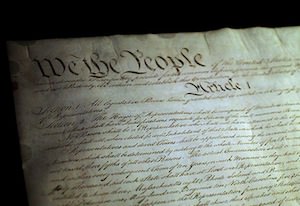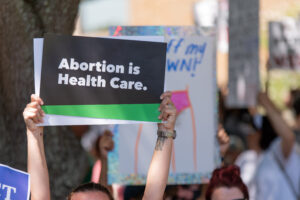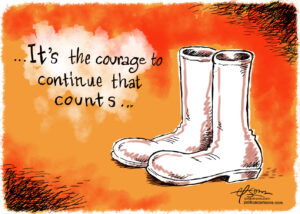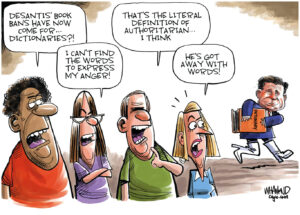Score a Victory for the Poor and for Constitutional Rights
A federal court ruling in Florida this week that drug testing low-income applicants for public assistance is unconstitutional could set the stage for a larger challenge to the political scapegoating of the poor. Could we be seeing the swing of the pendulum?
A federal judge in Florida kicked out the old year on a high note, striking down Gov. Rick Scott’s pet draconian law requiring welfare recipients to pass drug tests as unconstitutional, a ruling that could signal a political shift away from the right wing’s ostracizing of the poor as the Republicans try to figure out ways to make themselves more politically palatable.
The broader notion was tackled the other day in a piece by CNN.com that looked at poverty as a political matter that has been paid, at best, lip service by the Democrats and ignored by the Republicans, despite its persistence as one of the signal issues of the era. From CNN:
(T)here is almost no real discussion around issues important to them in Washington except when they surface in periodic budget wrangling.
Dr. Mariana Chilton, an associate professor at Drexel University’s School of Public Health and founder of the Witnesses to Hunger project focusing on “mothers who know poverty first hand,” said the lack of discussion is detrimental to the poor because winning candidates can’t be held accountable for promises they never make.
“We’ve seen a complete falling away of people in positions of leadership,” she said.
Medicare and Social Security receive widespread attention on the campaign trail. While both serve poor people, they are available to all seniors. Politicians covet senior voters.
Welfare, unemployment benefits, food stamps — government programs intended to benefit those most in need — are spread throughout the population and don’t get as much political exposure.
While an expansion of government programs could be risky rhetoric in some political circles, especially Republican, innovative approaches to address the often-talked about gap between rich and poor and the shrinking middle class are also absent.
In fact, the Republicans have been scapegoating the poor for years, most recently in state level efforts to require welfare recipients pass drug tests to receive Temporary Assistance for Needy Families benefits — an attitude that persists despite assessment reports that states are spending millions to catch a handful of drug users. Much like voter fraud, it’s a manufactured problem designed to obscure bigotry and cynical manipulations of the political system.
The ruling in Florida on Dec. 31, which made permanent an earlier temporary barring of the practice, sets the stage for the kind of high-profile showdown such poverty issues need. From The New York Times:
Florida passed the measure in 2011, and the case was being closely watched by several other states, including Georgia, which passed similar legislation in 2013 but found it dogged by legal challenges. State data in Florida also showed that the measure produced few results. Only 108 out of 4,086 people tested — 2.6 percent — were found to have been using narcotics. State records showed that the requirement cost more money to carry out than it saved.
But as the country emerged from the recession, numerous states, powered by the strength of Republicans in many legislatures, sought to make welfare or unemployment checks contingent on drug testing. That is despite a 2003 federal court ruling in Michigan that struck down drug testing for welfare recipients because it amounted to an illegal search.
“In Michigan a number of years ago there was a court decision that had a chilling effect on these kinds of proposals,” said Grant Smith, policy manager of the Drug Policy Alliance, an organization that advocates more liberal drug-use laws. “This new ruling should give pause. We have seen a number of proposals continue to be put forward across the country, but the writing is on the wall that requiring people to submit to drug testing for no reason other than being poor and in need of assistance is not going to pass constitutional muster. It’s not fair, it’s not cost effective, and it’s unreasonable.”
Scott, of course, has vowed to appeal, deciding to spend even more money on a policy that is unsound legally and morally indictable. And that seems destined to fail, if earlier court decisions are an indicator. District Judge Mary S. Scriven had issued a preliminary order in October 2011 in the case brought by the Florida ACLU, a decision Scott appealed but lost in February 2013 when a three-judge panel of the 11th U.S. Circuit Court of Appeals sided with Scriven.
The full appeals court rejected Scott’s request for a review, setting the stage for Scriven’s decision this week. From the Miami Herald:
In her Tuesday ruling, Scriven relied heavily on the 11th Circuit opinion, which cited previous U.S. Supreme Court rulings that restricted urine tests by government agencies to employees working at dangerous jobs or in jobs where schoolchildren were involved.
Scott’s lawyers argued that TANF recipients should be considered a “special interest” exception to the Fourth Amendment. The tests are needed to ensure TANF participants’ job readiness, help the social welfare program meets its goals and guarantee that the public money is used for its intended purpose and not spent on drugs.
But Scriven criticized the expert witnesses, testimony and evidence the state used to defend the law.
“In sum, there simply is no competent evidence offered on this record of the sort of pervasive drug problem the State envisioned in the promulgation of this statute,” she wrote.
The state failed to show that TANF recipients used drugs with more frequency than the rest of the population, Scriven found. But even if it had, creating a special class of people who would be exempt from the constitutional protections could be dangerous, she wrote.
“If persons in an economic demographic could be shown to have a higher rate of drug use, would all such persons in that economic group be subjected to drug testing? Even if such suspicionless testing as proposed by the State were limited to those persons receiving state funds, would college students receiving governmental assistance to subsidize their education, for example, be subjected to random, suspicionless drug testing if it could be shown that drug use is demonstrably higher among college students? The Supreme Court’s Fourth Amendment precedent would suggest not,” Scriven wrote.
It might be too much to hope for, but with an old-school liberal now as mayor of New York City, a socialist sitting on the Seattle City Council and national support increasing for raising the minimum wage, maybe the plight of America’s growing poor population is muscling its way to the front of the political issues line.
—Posted by Scott Martelle.
Your support matters…Independent journalism is under threat and overshadowed by heavily funded mainstream media.
You can help level the playing field. Become a member.
Your tax-deductible contribution keeps us digging beneath the headlines to give you thought-provoking, investigative reporting and analysis that unearths what's really happening- without compromise.
Give today to support our courageous, independent journalists.






You need to be a supporter to comment.
There are currently no responses to this article.
Be the first to respond.